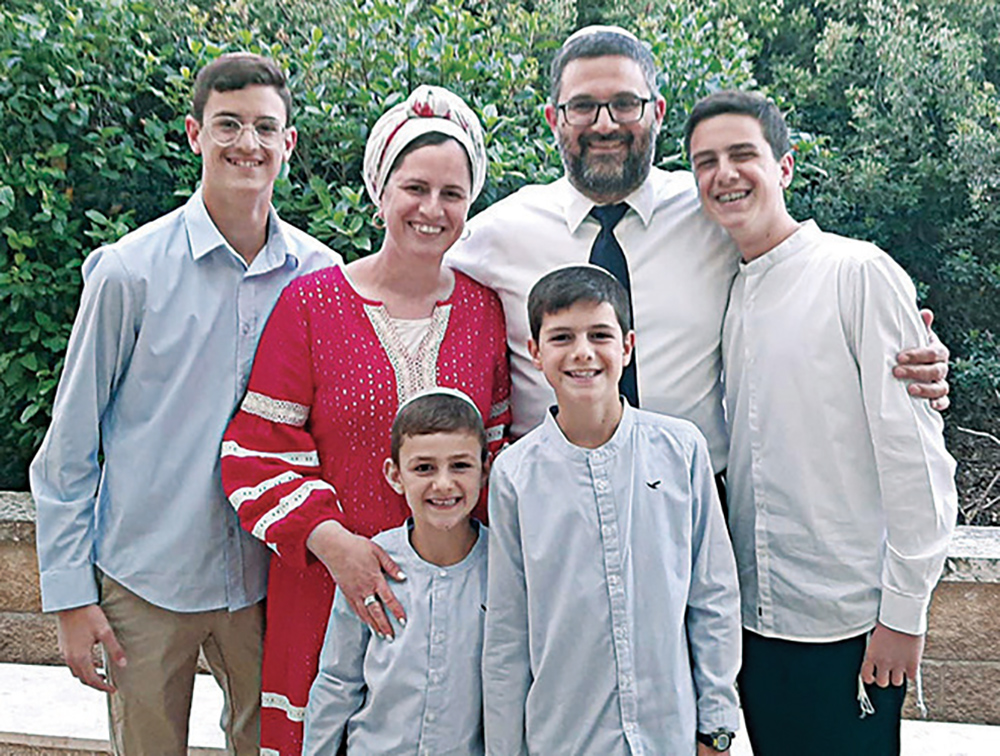
Remember Rabbi Motti Simpson, aka “The Melamed’”? Last year’s column on Rav Motti described a passionate, dedicated elementary-school teacher, but one who was increasingly frustrated by his low salary. At that time, Rav Motti had shared, “I don’t see a way out if I stay in this field. The only option is to become a principal, but the additional salary is not much, and when you consider all the added hours that go with the job of principal, it’s just not worth it financially.” Well, Rav Motti recently completed his first year as an elementary-school principal. To find out why he decided that it would in fact be worthwhile to go from being a melamed to being a menahel, I met up with him at the beginning of July. Spoiler alert: Rav Motti’s cost-benefit analysis of the job of principal would not prove mistaken—neither in terms of salary nor in terms of working hours.
Rav Motti told me that around the time that the column appeared he had indeed been close to leaving the field of education. Impelled by his poor financial situation, Rav Motti had entered into discussions with a company that specializes in retraining educators for employment in hi-tech. But, a phone call from Rav Michael Yammer, head of the hesder yeshiva at Sha’alvim, changed everything. Rav Yammer also takes an interest in all the educational institutions at Kibbutz Sha’alvim, and the boys elementary school needed a new principal. At the time, Rav Motti was not interested in a principalship, however, as Rav Yammer was a senior rabbinic figure, out of respect, Rav Motti agreed to a meeting.
Twenty minutes into his meeting with Rav Yammer, Rav Motti was sold. In hindsight, Rav Motti realizes that, at heart, his crisis was not financial but emotional. “I had reached an age [then 44] when I needed to burst forth. I have always liked to lead; I was a commander in the army, and I was the lead rabbi at my school. I needed a new challenge … I needed someone to tell me, someone important and respected, ‘Come, we need you to run things here, we need you to take over.” After the meeting, Rav Motti spent many hours talking things through with his wife Orit (who is also a schoolteacher). Orit had felt that leaving education “would contradict every bone in my body.” And so, with Orit’s blessing, Rav Motti became a principal.
The beginning was difficult. He said, “there was not one moment when I didn’t ask myself ‘why did I do this?” He relied greatly upon help from his former principal in the school where he had worked for a dozen years. Toward the middle of the year, a mentor-principal was assigned to him; also very helpful were the monthly principal workshops that he attended. (Interestingly enough, the principals in these workshops were drawn exclusively from Jewish religious schools and from Arab schools—largely composed of religious Muslims).
When we met, Rav Motti was in the midst of planning for the 2023-2024 school year and brimming with enthusiasm. “Now that the year has ended I really feel at home here,” he said.
What changed for Rav Motti? He explained, “At my previous school, where I was a teacher, I did not have overall responsibility; I was within a framework and the school’s problems were not my problems. Here, I am the one who constructs the framework of the school—the problems are my problems.”
What about his financial situation? “We are still in the same financial hole. It’s very frustrating, but I remind myself that I’m doing what I want to do. If you are doing what is essential to you, if you are emotionally and spiritually filled up, then the hard work and the limited salary are worth it.”
As for his new-found career and his goals for his school, “My belief in ideals has returned. Being a principal is me; it is an ideological position. I want the Torah to enliven us, and I am working here so that the Torah will be more present in the school, so that the kids will be happier and more connected to the Torah, so that the teachers will feel that they are appreciated and so that everyone will understand that Torah and excellence can go together.”









